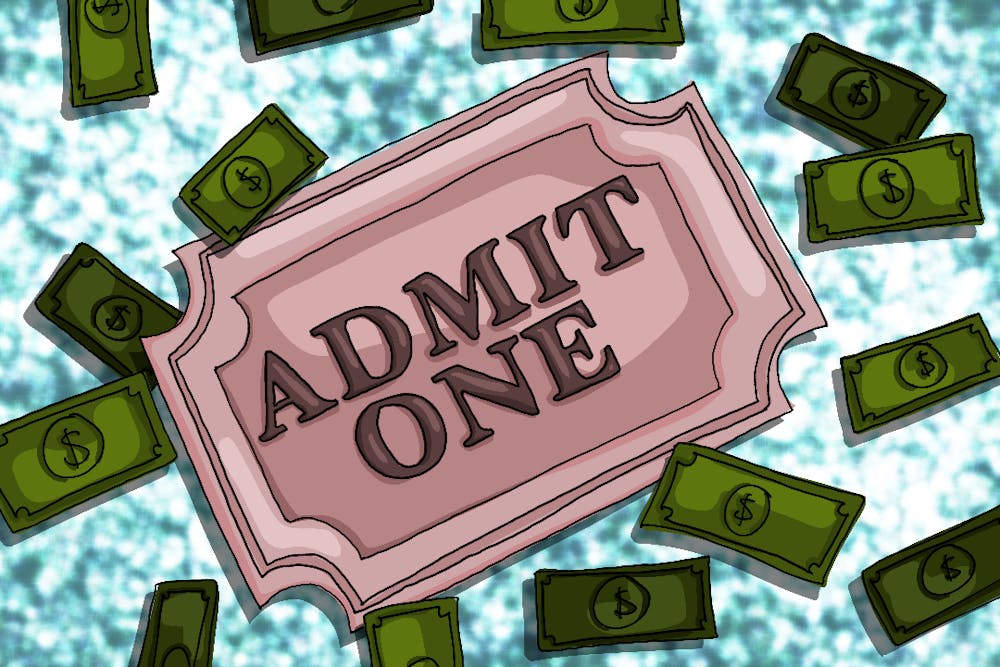Taylor Swift fans across the state know all too well the fight for Eras Tour tickets against bots. Now, Gov. Katie Hobbs has signed legislation to prevent bots from purchasing more tickets than the posted limit, which could put power back in the hands of ticket buyers across the state.
The "Taylor Swift bill," formally known as House Bill 2040, says that anyone caught making bots for purchasing tickets, using multiple IP addresses, or disabling security or ticket sale regulations could be charged up to $10,000 per violation. According to the legislation, a violation is acquired per ticket.
The bill will extend protections beyond big artists. Stephen Chilton, the owner of The Rebel Lounge, said it boils down to all music lovers being able to enjoy concerts at a reasonable price.
"What you don't see is this is happening for every single event and every single level," Chilton said. "It may be newsworthy when you get ripped off on a Taylor Swift ticket ... it doesn't make the news when you get ripped off on a show at Rebel Lounge."
The bill was initially introduced in the state House on Jan. 10 and was introduced to the state Senate in late February. HB2040 went to Hobbs' desk on April 4 and was officially signed on April 10.
"I was scammed out of $300 when I was 17, trying to see one of my favorite artists play at a local venue," said Riley Blocker, a sophomore studying popular music and a member of the band Right Rosemary. "Basically, they'd just bought from the venue, potentially with bot accounts, and resold the tickets at a preposterously heightened price."
While fans continue to ask "Is it over now?" the consequences of bot use in online ticket buying will be left to the attorney general.
"It was a humiliating and costly mistake, and I support any measure to prevent such deception from happening to any other fellow music-goers," Blocker said.
The bill will extend beyond concerts and encompass theater performances, sporting events, exhibitions and more.
Kate Oster, a sophomore studying popular music, said that as someone who enjoys seeing live shows, it's about giving experience back to the fans.
"(Live shows) are like constant adrenaline through the night," Oster said. "For some people, it's a one-time experience."
Hobbs also signed House Bill 2194, which regulates the actions of "a reseller, a secondary ticket exchange or any affiliate of a reseller or secondary ticket exchange."
Oster said ticket resells have started preventing fans from getting to concerts because they become priced out.
"A lot of fans I know can't afford the prices of the reselling," Oster said. "They need to take the tickets away from the resellers so fans can actually afford to see their favorite artists."
Chilton said he believes this bill will have a larger impact, especially when it comes to fighting ticket scalpers.
"Fighting scalping and trying to come up with (solutions) has been an issue as long as there's live events," Chilton said.
Ticket scalping is when tickets are bought by people who plan to resell tickets — often for a higher-than-market price.
"Because of the internet, because of the secondary platforms like StubHub and Vivid Seats, it's expanded it to all sorts of places that it wouldn't have used to be," Chilton said about ticket resales. "No one would have been scalping tickets ... if it wasn't easy through these platforms to get in between that transaction."
Edited by Sophia Braccio, Sadie Buggle and Caera Learmonth.
Reach the reporter at alysa.horton@gmail.com and follow @alysa_horton on X.
Like The State Press on Facebook and follow @statepress on X.
Alysa is a senior studying journalism and mass communication with a minor in political science. This is her fifth semester with The State Press. She has also worked at The Arizona Republic.




